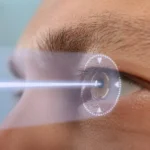Understanding how to advocate for yourself with a plastic surgeon can help you get the most out of each appointment. Regardless of the plastic surgery procedure, having the right knowledge helps you achieve the desired outcomes and support the healing process. This enables you and your surgeon to make informed decisions about successful cosmetic treatments. Here are a few ways to advocate for yourself with your plastic surgeon:
Prioritize Thorough Preparation
Before calling the office to book an appointment, take the time to thoroughly prepare. Preparation often includes:
- Defining your goals: What do you want to achieve with plastic surgery?
- Researching available procedures: This helps you understand the potential benefits and risks to determine if a given procedure is the right fit for you.
- Visiting the surgeon’s website: A surgeon’s website can provide an overview of various cosmetic procedures and the expected recovery times.
- Compiling questions: Write down all the questions you’d like to ask your surgeon. If you’re new to cosmetic treatments, questions help you understand each step of a specific procedure.
Be Open and Honest During Consultation
Self-advocacy with a plastic surgeon requires openness and honesty during consultations. Sharing your motivations and goals for the procedure may help a surgeon customize a treatment option. Highlight any health issues you have, including the medications you’re taking, as they can influence treatment options. Several lifestyle habits, such as tobacco and alcohol use, impact surgery and recovery. You should also share all concerns or fears you have regarding a given procedure. This allows your surgeon to address your concerns beforehand, assess your suitability for the procedure, and develop an effective surgical plan.
Keep Detailed Records
Some plastic surgeons require detailed information regarding your medical history and previous appointments. Gathering your medical records and taking notes about previous surgeons you’ve met helps organize information and makes it easy to share with doctors. Records should also include any tests you’ve had, including the recommended treatment options. If you are experiencing current symptoms or ongoing side effects from your medication, keep a record of them.
During a consultation, listen actively and take notes about key information. Noting the surgeon’s recommendations, expected outcomes, and potential risks enables you to evaluate your options. This also helps patients remember beneficial information as the surgery date approaches or during recovery.
Understand the Follow-Up Plan
Many cosmetic procedures involve an initial post-operative phase, subsequent appointments, and a final check-up. These allow surgeons to monitor healing and address any complications. During follow-up visits, your surgeon may inspect the incisions and dressing to verify that healing is progressing properly. This allows for early interventions when complications arise. You should also understand and follow the post-operative care instructions at home, including medication schedules and dosages and activity restrictions.
Receive Quality Plastic Surgery Today
Receiving high-quality cosmetic treatment from a qualified surgeon can help you achieve the desired outcomes. If you’re advocating for yourself with a plastic surgeon, participate actively in decision-making. This includes asking questions and listening attentively during consultations. Effective self-advocacy helps you maximize surgery outcomes. Contact a trusted plastic surgeon today to discuss your goals and ideal surgical plan.





